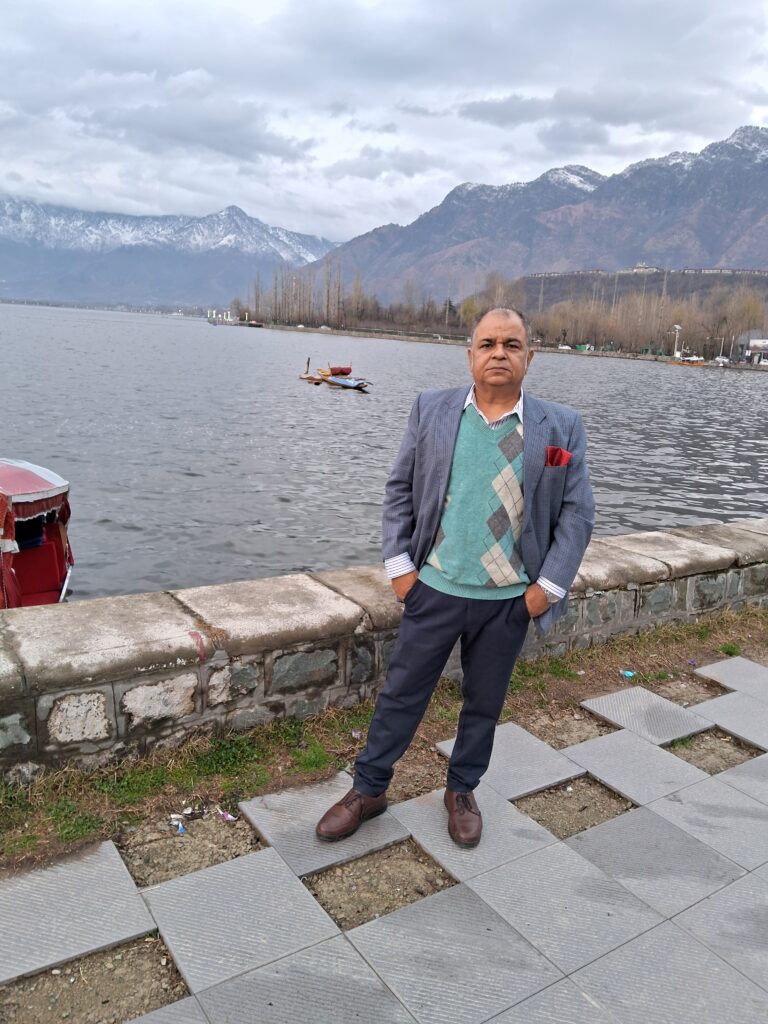The first impression that one gets after landing in Srinagar, Kashmir—apart from the scenic beauty—is that of cleanliness all around and affable disposition of the local people. I got the impression right at the airport on March 13 evening, where I had gone for a two-day conference on horticulture.
As our vehicle navigated through the roads, a couple of things were noticeable. First, it was not a city bubbling with life. Thankfully, it was because of Ramazan, and not because of any tension arising out of a terror attack or some militant agitation. Second, the streets were not littered with garbage, though one could see a biscuit wrapper and abandoned used water bottle here and there.
The driver, Sajid, told us about his work, about how tourism, booming now, was hit earlier. An amiable chap, he marketed himself, saying that if in future we wish to come here on a vacation, we must contact him. This, by the way, seems to be the pattern. When the next day we went for boating on Dal Lake, the shikara rower, Momin, also requested us to contact him if and when we decide to visit Kashmir again.
He informed us that he keeps visiting Delhi, as he has an outlet at a mall in the national capital. The dried fruit seller we bought berries and walnuts from also told us about his dealings with the traders of Delhi’s Khari Baoli. He gave us his business card, telling us that we could also directly get his wares paying Rs 50 per kg freightage.
. A taxi driver bitterly complained about the local political leaders who instigate youngsters to violently protest against the government but send their own children to study abroad.
Those who think that the repeal of Article 370 has ‘alienated’ Kashmiri Muslims, resulting in their sullenness towards visitors, especially non-Muslim, would be disappointed to find that such a thing doesn’t exist. The sincere ones among them, if any, will be pleasantly surprised and may like to rethink their positions.
At least, I didn’t find it in my short stay in which my interaction with people was minimal. People in general were friendly and helpful. My nephew and his family, who visited Kashmir last year, also had a similar impression. This, by the way, is typical of the touristy places.
At the same time, those who took the propaganda movie Kashmir Files seriously would also be disappointed to find that the Kashmiri Muslims are not exactly cruel, treacherous folks. At least, I didn’t find them such.
Islamization has left its traces though. Every female, of any age, I saw in Srinagar wore a hijab, though I don’t recall burqa-clad women.
This unfortunate development, however, doesn’t seem to have confined women to households. I saw them everywhere—on streets, in shops, on the campus of the Sher-e-Kashmir University of Agricultural Sciences and Technology, which hosted the conference. In fact, a couple of young male students I spoke to told me that 70 per cent of students in the university are girls.
Dal Lake is the source of livelihood for thousands of people. They try to provide everything to tourists right there on the lake; there are hawkers selling eatables and souvenirs on canoes and floating eateries. It was there that I came to know that the so-called boathouses on Dal are actually houses where people stay but not boats. They are rather accommodations by the lake. While shaped as boats, they are fixed to the lake bed with wooden pillars.
It was a nice trip, though it could have been more enjoyable with more sight-seeing and interaction with people.
